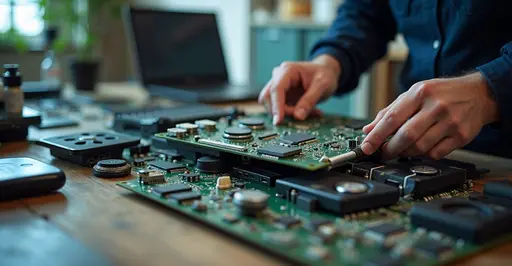
New EU Regulations Empower Consumers and Independent Repair Shops
The European Union's groundbreaking Right-to-Repair legislation is fundamentally changing how consumers maintain and repair their electronic devices. Implemented throughout 2025, these new rules represent the most comprehensive consumer protection measures for electronics repair in decades.
What the New Rules Mean for Consumers
Under the EU's Right-to-Repair framework, manufacturers of smartphones, laptops, tablets, and other electronic devices must now provide:
- Access to genuine spare parts for at least 7-10 years after product discontinuation
- Repair manuals and technical documentation available to independent repair shops
- Fair pricing for replacement parts and repair tools
- Software updates that don't disable third-party repairs
- Clear repairability scoring on product packaging
Independent Repair Shops See Business Boom
We spoke with several independent repair shop owners across Europe who report significant business growth since the regulations took effect. "Before these rules, we often hit software locks or couldn't get genuine parts," explains Maria Rodriguez, owner of TechFix in Barcelona. "Now we can properly service devices that manufacturers previously tried to make unrepairable."
According to industry data, independent repair businesses have seen a 40% increase in repair requests for laptops and smartphones in the first quarter of 2025 compared to the same period last year.
Environmental Impact and Sustainability Benefits
The environmental benefits are substantial. The European Environmental Agency estimates that extending the lifespan of electronic devices by just one year could reduce CO2 emissions equivalent to taking 2 million cars off the road annually. Electronic waste reduction is another critical benefit, with millions of devices potentially being repaired rather than discarded.
Manufacturer Response and Implementation Challenges
While some manufacturers have embraced the changes, others have been slower to adapt. Major tech companies are now required to establish comprehensive spare parts distribution networks and provide repair training to independent technicians.
The legislation also addresses "parts pairing" practices where manufacturers use software to prevent component replacement without authorization. This practice is now heavily restricted under the new rules.
Consumer Savings and Economic Impact
Early data suggests consumers are saving 30-60% on repair costs compared to manufacturer service centers. The repair economy is expected to create thousands of new jobs across the EU as independent repair businesses expand to meet growing demand.
For more information on your repair rights, consumers can visit the European Commission's consumer protection portal or contact local consumer advocacy organizations.

 Nederlands
Nederlands English
English Français
Français Deutsch
Deutsch Español
Español Português
Português







